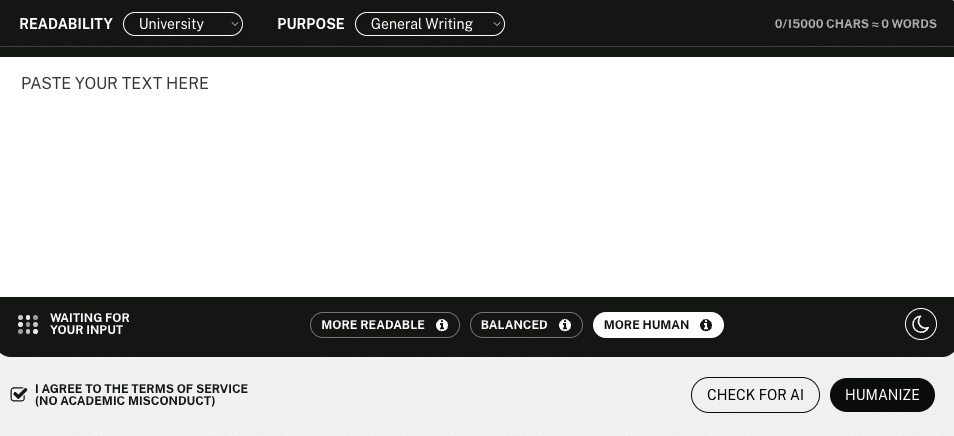In an era where artificial intelligence is increasingly prevalent in content creation, a new player has emerged, stirring up controversy in various industries.
Undetectable AI, launched in May 2023, is a software designed to rewrite AI-generated text to make it appear more human-like, effectively bypassing AI detection systems.

Origins and Development
Undetectable AI was founded by Christian Perry, Bars Juhasz, and Devan Leos.
Its emergence has sparked intense debate about the ethical implications of such technology and its potential impact on various sectors, particularly academia and online content creation.
Devan Leos, the CCO of Undetectable, says the company’s origins were multifaceted. “We wanted to solve the problem of AI writing like a robot, but also, we wanted to prove that AI detection systems weren’t infallible.”
How Undetectable AI Works
At its core, Undetectable AI is an AI detector that also functions as an adversarial AI system. Its primary purpose is to take text generated by large language models and modify it in ways that allow it to evade detection by conventional AI content recognition tools.
This capability has raised alarm bells among researchers and educators concerned about maintaining the integrity of academic work and online information.
Academic Concerns
The software has caught the attention of researchers worldwide. A study from Magna Græcia University, led by Andrea Taloni and colleagues, found that while current AI detection software like Originality.ai could identify standard AI-generated scientific texts with 95% accuracy, content processed through Undetectable AI became significantly more challenging to detect.
Erik Piller, an academic at Nicholls State University, questioned the ethical foundations of such software in a paper addressing AI ethics in professional writing contexts. Piller expressed skepticism about potential positive applications for the technology.
Data Quality Implications
Additionally, there are concerns about how Undetectable AI might affect data quality in research. Dr. Christoph Bartneck and his team investigated the software’s potential to compromise online questionnaires. Their findings suggest that while AI detection systems struggle to identify text obfuscated by Undetectable AI, human judgment may still be more effective in distinguishing between human and AI-generated content.
Cultural Impact and Usage
Despite the controversies, Undetectable AI has found its way into various applications. EarthWeb used the software alongside GPTZero to analyze celebrity apologies, leading to speculation about AI involvement in crafting public statements.
Media outlet SourceFed announced plans to use Undetectable AI to screen for AI-assisted content, indicating a growing role for such tools in content verification processes.
The Broader Debate
The emergence of Undetectable AI highlights the ongoing cat-and-mouse game between AI content generation and detection technologies.
As AI becomes more sophisticated in creating human-like text, tools designed to identify such content must evolve in tandem. This dynamic raises essential questions about the future of content authenticity, academic integrity, and the potential for misuse of AI technologies.
Proponents of Undetectable AI might argue that it is necessary to check overzealous AI detection systems, ensuring that legitimate content isn’t falsely flagged. Critics, however, warn that it could be used to spread misinformation or engage in academic dishonesty.
Looking Ahead
As Undetectable AI continues to gain attention—ranking 35th among the most visited AI software in 2023 according to a report by Flex.os—the debate surrounding its use and implications is likely to intensify.
Educators, researchers, and tech ethicists are calling for more robust discussions on how to balance technological innovation with the need for content integrity and honesty.
The controversy surrounding Undetectable AI underscores society’s complex challenges as AI technologies become more advanced and widely available.
As the line between human-generated and AI-generated content continues to blur, finding ethical and practical solutions to ensure transparency and authenticity in digital content remains a pressing concern for technologists, academics, and policymakers alike.
Published by: Holy Minoza









